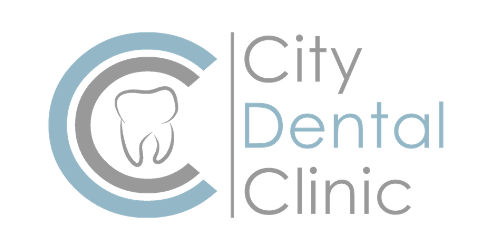Mini dental implant treatment
Traditionally, people who have lost multiple teeth had a choice between dental implants, bridges or removable dentures to restore their smile. Due to the higher cost of implants, most people who have significant tooth loss typically opt for dentures which represent the less comfortable option.
Thanks to advancements in dental technologies people who are experiencing tooth-loss have an additional choice. Nowadays, people can make use of an innovative treatment method called mini implants or mini dental implants. Read on to discover the most important information about mini implants, and find out whether this type of treatment provides a potential solution to your current dental situation.
What are mini dental implants?
A mini implant serves the same function as a regular dental implant and is used as a replacement of a missing root in a patient’s jaw. Once placed in the jaw, the mini implant becomes a permanent artificial root that can be used to secure single crowns or removable dentures. There are various manufactures that offer different types of mini implants. Some manufactures offer one piece mini-implants while others offer two-part mini implants.
The mini implants by ICX, which are used by City Dental Clinic, have a similar structure as regular implants, but are significantly smaller in overall size. The mini implant system that we use at City Dental Clinic has three parts. The implant itself is made up from two parts: a titanium screw that serves as the artificial root and an abutment with a ball-shaped top. The third part, a socket with a rubber O-ring is attached to the single crown or removable denture and serves to secure the crown or denture onto the mini implant/s with a clip-on mechanism.
Mini dental implants vs. regular dental implants
Due to the similar name and similar structure many people are not able to tell the difference and often times confuse the two types of implants with one another. Let’s take a closer look at differences between mini implants and regular implants:
As every manufacturer produces slightly different versions of dental implants there is no one size for dental implants. In general, regular dental implants from most reputable manufacturers have a diameter of 3 to 6mm.
- Regular implants from ICX have a diameter of 3.4 to 4.8mm.
- Mini implants from ICX have a diameter of 2.9mm.
As you can see the mini implant’s diameter is roughly half the diameter of a regular implant. The smaller size in diameter means that structurally it would take about 2 mini implants to provide the same support as a large regular implant. Does that mean that mini dental implants are inferior to regular dental implants? Absolutely, not. Due to the fact that treatment needs differ from patient to patient, each patient’s needs and health situation dictate which type of dental implants could or rather should be used.

When are mini dental implants typically used?
As we discussed earlier mini implants and regular implants serve the same function. They act as an artificial root and can be used as an anchoring point for a single crown or dentures. For dental bridges of 2-4 artificial teeth, it is typically recommended to rely on regular implants as they provide a greater structural integrity. There are several scenarios when it is advisable to consider mini implants for treatment of a patient’s tooth loss. Let’s examine scenarios when mini implants can be used instead of regular implants.
Small teeth
Some people genetically have a small jaw and small teeth. In such situations mini implants can be used to act as an artificial root for a single crown, as traditional implants might be too big and not fit in the space between the healthy roots.
Frontal teeth
Similar to the first scenario, the frontal teeth are also a common scenario where mini implants can be the preferred choice over regular implants. The lack of space between teeth often times makes it nearly impossible to place a regular implant.
Premolar tooth replacement
Premolar teeth in some cases can be replaced with mini implants, as they do not have to withstand the same bite forces as molar teeth.
Dentures
The most common scenario where it is advisable to use mini implants is to secure a removable denture in place for greater comfort. Most people who wear dentures make use of an adhesive to hold the denture in place during their daily activities. Unfortunately, the adhesive does not offer a perfect solution. Nearly every person who wears a denture has experienced a slip, particularly when eating.
When using mini implants to hold the removable denture in place, wearers can live life more comfortably. The denture sits on the ball-shaped structure of the mini implant which allows for some natural movement while the rubber O-ring prevents the uplift during eating. The greater stability of mini-implant supported dentures gives people peace of mind as they can be assured that their denture is much less likely to move out of place when talking or eating and allows people to enjoy a wider range of foods.
Mini dental implant placement procedure
Step 1: Consultation
During the initial consultation, our implantologist will examine your situation thoroughly and analyze whether the solution that you desire is attainable. To do this we will need to prepare 3D scans. Should you already have 3D scans, please inform us beforehand and bring them with you to the consultation appointment. The 3D x-rays will help our implantologist to evaluate the state of oral health and bone density in the jaw. Based on the amount of available bone, the structural integrity of the bone and the available space it will be decided whether a regular implant or mini implant is the best solution for your individual case.
Besides determining whether you are a candidate for implants or which type of implants are best suited for you, you will also be informed about the steps that are involved with such a treatment as well as the estimated duration for the entire treatment completion.
Step 2: Placing the implants
Once you accept the treatment plan and decide to move on with the mini implant treatment it will be time to place the mini implants in your jaw. During the implantation appointment, which generally takes less than 2 hours, the mini implants will be placed directly into your jaw under local anesthesia. The exact number of mini implants that are required for your treatment will be specified by the implantologist in the treatment plan that you receive 7-14 days after the consultation.
Patients who require mini implants to secure a denture in their lower jaw typically receive 4 mini implants. Patients who require mini implants to secure a denture in their upper jaw typically receive 6 mini implants.
Step 3: Fitting the single crown or implant retained denture
Crown / Bridge
If the patient requires a crown or bridge it is possible that impressions will be taken before the placement of the mini implants. The most likely procedure however is to first place the mini implants and then take impressions. This ensures that the crowns or bridges can be ideally fitted onto the newly placed mini implants.
New denture wearers
If the patient does not yet have a denture, impressions will be taken after the treatment in order to build a custom made denture that will perfectly fit onto the newly placed mini implants.
Existing denture wearers
If the patient already had a denture beforehand and it is determined by the dentists that this denture still functions properly, it is possible to alter the denture in a way to allow it to connect to the newly placed mini implants. For this special metal fittings with a rubber O-ring are attached to the denture itself. These rings clip onto the ball shaped part of the mini implant providing a stable and comfortable fit for the wearer.
How long do mini dental implants last?
For this it is not possible to give a definitive answer, as the life span of mini implants depends on various factors and differs from patient to patient.
Some aspects that can greatly affect the life span of mini implants are:
-
Smoking
-
Excessive alcohol usage
-
Substance abuse
- Osteoporosis
How to care for mini dental implants?
People often ask how they should care for their mini implants after they receive them? A detailed instruction will be of course provided to you by our implantologist during the various treatment steps. To give you a short answer you should know that mini implants require the same care as your natural teeth. This means that you should clean your teeth at least twice daily. Ideally, remove your denture after every meal and clean your mini implants with your brush as you would do with your natural teeth.
During the initial healing period after the implantation treatment you should switch to a very soft tooth brush as your gums will likely be very sensitive. After the initial healing period when your gums become less sensitive again you can switch back to a normal tooth brush. Besides the proper oral hygiene habits you should also avoid hard and overly sticky foods initially, as these types of foods would put a higher amount of stress on your implants.
Contact us
we will contact you
